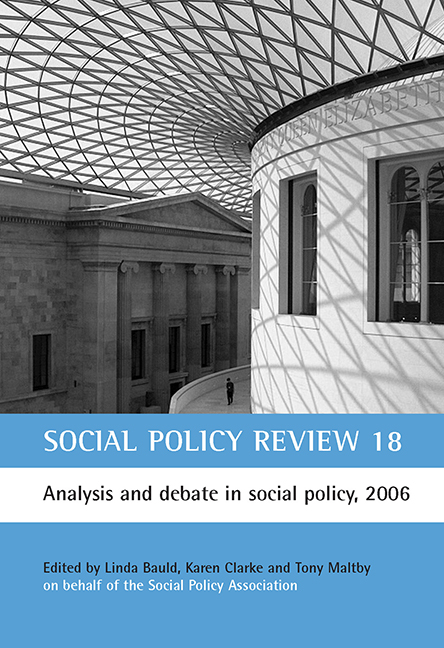eight - Happiness and social policy: barking up the right tree in the wrong neck of the woods
Published online by Cambridge University Press: 15 January 2022
Summary
Introduction
Research on happiness is currently enjoying a higher profile than at any time since Jeremy Bentham and the utilitarians in the 18th century. In particular, some economists have in recent years turned their attention to possible connections between happiness and various aspects of economic behaviour (see, for example, Frey and Stutzer, 2002). This builds on work by psychologists over many decades on the relationships between happiness, personality traits and experiences (for a review, see Diener, 1994). This chapter considers whether there are insights to be gleaned for social policy from this resurgence of interest in the idea of happiness. Is happiness a useful way to conceptualise well-being and is promoting it an appropriate goal for social policy? What light, if any, does the accumulating evidence on the determinants of happiness shed on the optimal design of social policies?
The next section briefly outlines the motivations behind the development of the ‘economics of happiness’ and describes the indicators commonly used to measure happiness or subjective well-being (SWB), as it is sometimes called. A review of empirical findings on the determinants of SWB is then offered, and the possible policy implications are drawn out. In some cases, this offers a new rationale for an existing area of policy; in other cases, the happiness perspective indicates that aspects of individuals’ circumstances that have received little policy attention should be afforded a higher priority. However, I argue that an exclusive concern with happiness as a policy objective would be mistaken for two reasons, the first relating to the plurality of human ends and the second relating to distributional issues. The chapter concludes that while research on the economics of happiness is a useful corrective to the overly materialistic focus of traditional welfare economics (it is barking up the right tree), the philosophy on which it is based does not provide a secure foundation for the development of social policy (it is in the wrong neck of the woods).
Development of the economics of happiness
Current interest in the economics of happiness can be traced back to its roots in classic utilitarianism, as advocated by Bentham (1789). Classic utilitarianism held that states of affairs were to be judged solely on the basis of the total sum of utility that they produced, with utility interpreted as the balance of pleasure over pain (‘the greatest happiness of the greatest number’).
- Type
- Chapter
- Information
- Social Policy Review 18Analysis and Debate in Social Policy, 2006, pp. 145 - 164Publisher: Bristol University PressPrint publication year: 2006

